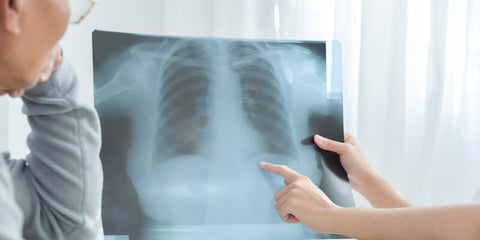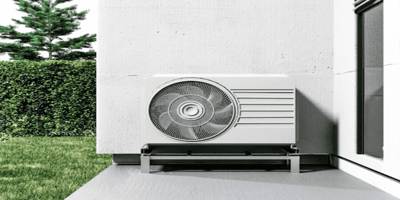Feeling ill? Ask your Doctor if you should be worried about Air Pollution

There is no escaping air pollution in most of the world today. If you are living in Southeast Europe, many regions there have about 99% of their population exposed to poor air quality levels at PM2.5 (a measurement for calculating population density and air pollution) which are way below the standards in place by the World Health Organization (WHO). Additionally, almost 12% of deaths in those areas (that’s 56,000 deaths) were linked to poor air quality in 2019. If you live in the United States, you might be 1 of the 137 million people breathing unhealthy air every single day. Air pollution has become one of the top 10 risk factors for bad health across the globe and the long term effects of being exposed to poor air quality are linked to a series of diseases and, sadly, premature deaths. The world only continues to industrialize and grow in population and until we lower our reliance on fossil fuels for energy, everyone is at risk of poor health due to rising air pollution.
Poor Air Quality Linked to Lung Disease

It is obvious that poor air quality affects the lungs, our organs in charge of our breathing, and those with chronic respiratory diseases are especially vulnerable to the effects of pollutants in the air. People who suffer from chronic obstructive pulmonary disease (COPD) are much more likely to experience exacerbated side effects making it even harder for them to breathe. About 25% of global COPD related deaths are premature due to poor air quality exposure. Air pollution can induce the onset of respiratory diseases as well. Asthmatic symptoms become worse and sthmatic attacks are triggered more when people with the chronic disease live in more dense and polluted areas. Research from WHO has also shown that lung cancer is related to air pollution and has been estimated to cause about 16% of lung cancer deaths.
Poor Air Quality and Heart Disease

As you take in a breath, air travels from your lungs into your heart, the organ in charge of supplying your entire body with oxygen through the bloodstream, and therefore it is also quite obvious that polluted air can increase your risk of developing heart disease. Air pollutants can damage and obstruct your blood vessels making it harder for your heart to do its job of supplying your body nutrients and oxygen. According to the US Environmental Protection Agency (EPA), research has found that air pollutant exposure is directly linked to plaque buildup in the heart, and that even healthy individuals had more cases of atherosclerosis than healthy people with less exposure. About 17% of all ischemic heart disease and stroke were because of air pollution.
Poor Air Quality and Risks of Delivering Babies too Early
Exposure to poor air quality, like at PM2.5 facing many populated areas in Southeast Europe, puts mothers at risk of delivering babies too early. Contaminants in the air are able to cross the placenta directly affecting the health of the placenta itself and the baby’s development causing them to be prematurely born and unusually small. These babies are more susceptible to developmental delays, disease and death shortly after birth. Air pollution has led to 500,000 deaths among newborns in 2019 which is 20% of the global total infant mortality. Poor air quality is also linked to many high risk pregnancy complications for the mother. Research shows that exposure to pollution while in the first trimester increases the risk of preeclampsia and high blood pressure for the mother. These complications can not only harm the mother but also the baby.
Poor Air Quality and Age

While almost everyone is exposed to air pollution, older and younger populations are at the highest risk of developing health issues. The largest number of low air quality related deaths happen among people 70 years of age or older. Air pollution only aggravates many of the health conditions the elderly population face and can lead to deaths related to heart disease, stroke, lung disease and diabetes. There is also emerging evidence that air pollution affects dementia and that people with great exposure to PM2.5 levels of certain pollutants (like NO2 and CO) were more likely to suffer from dementia. Young children are also more vulnerable to the effects of air pollution, mostly because they breathe more rapidly than adults and therefore can absorb more pollutants. Young children are still growing and clean air plays a huge role in a healthy development and their exposure to poor air quality can be linked to long term disease they develop in later years.
What can we do about the risks of poor air quality?
The WHO estimates that 4.2 million people die prematurely every year because of outdoor air pollution and 3.8 million from indoors leading to a total of around 7 million. And while the numbers are alarming, they are making governments and policy makers wake up to the risks and dangers of air pollution. Governments are finally putting health at the center of new environmental policies and will work to move away from polluting practices, like fossil fuel dependency. However, the move to a cleaner and safer world has only just begun and it could still take years before we can restore our earth to healthy levels, that’s why there are small changes you can do today to decrease your own risks.
Monitor and keep up to date with your region's local air pollution reports, this will help you know which areas put you most at risk, and which areas to avoid the most. Reduce your own fossil fuel usage by moving over to electric alternatives for many gas-charged habits. This could mean driving your car less and using public transportation or even going electric. It can also mean swapping out your gas oven for an electric one. And while you might not have control of the ambient or outdoor air pollution, you can take control of your own home’s indoor air quality. Monitor the air quality levels in your home and proactively clean and remove air pollutants from your environment.
Sensibo is a company dedicated to providing a healthy indoor environment and it's our mission to empower others to start taking control of their air quality. The awareness of the risks of air pollution are only the first steps. With the right products, knowledge and preparations you can ensure that your future is in the right direction towards a more healthy one.







































-3.jpg?height=200&name=shutterstoc%20(1)-3.jpg)